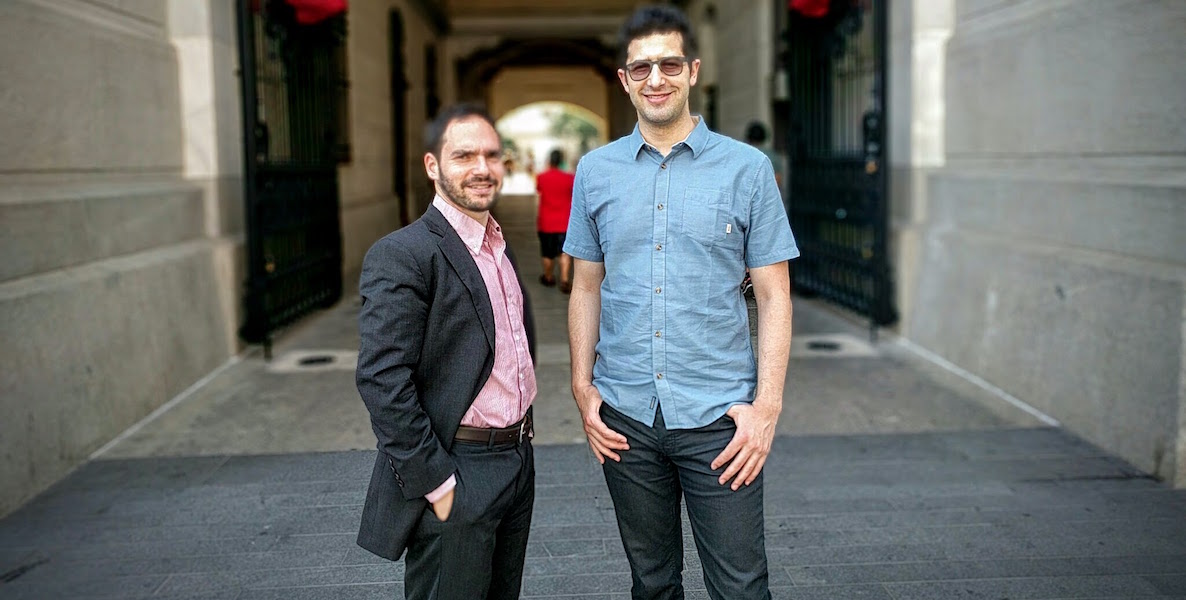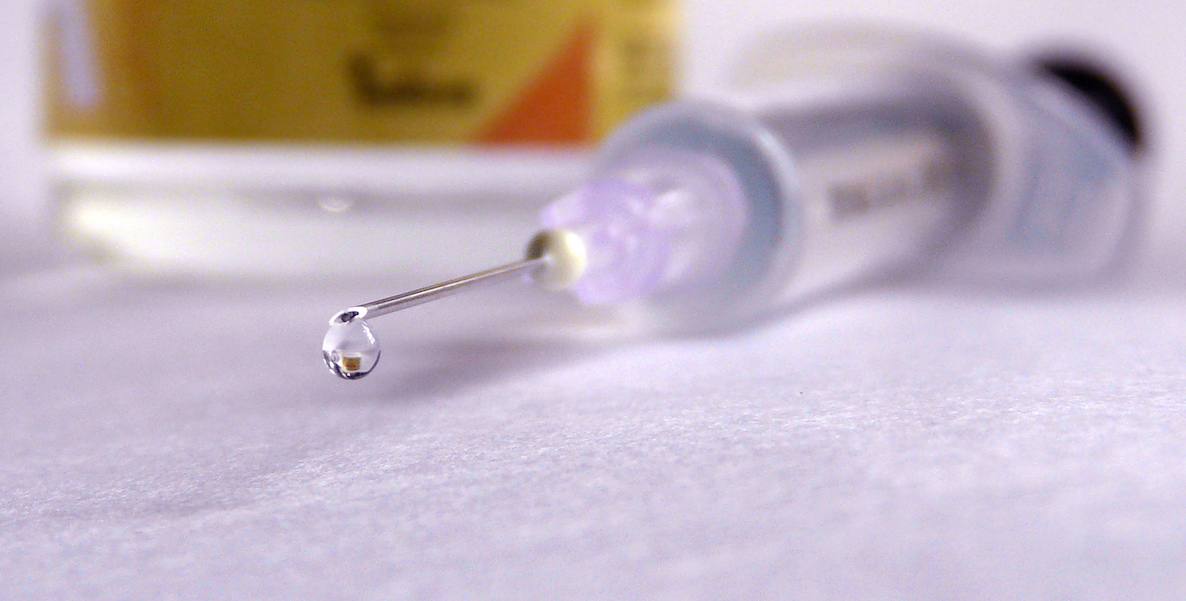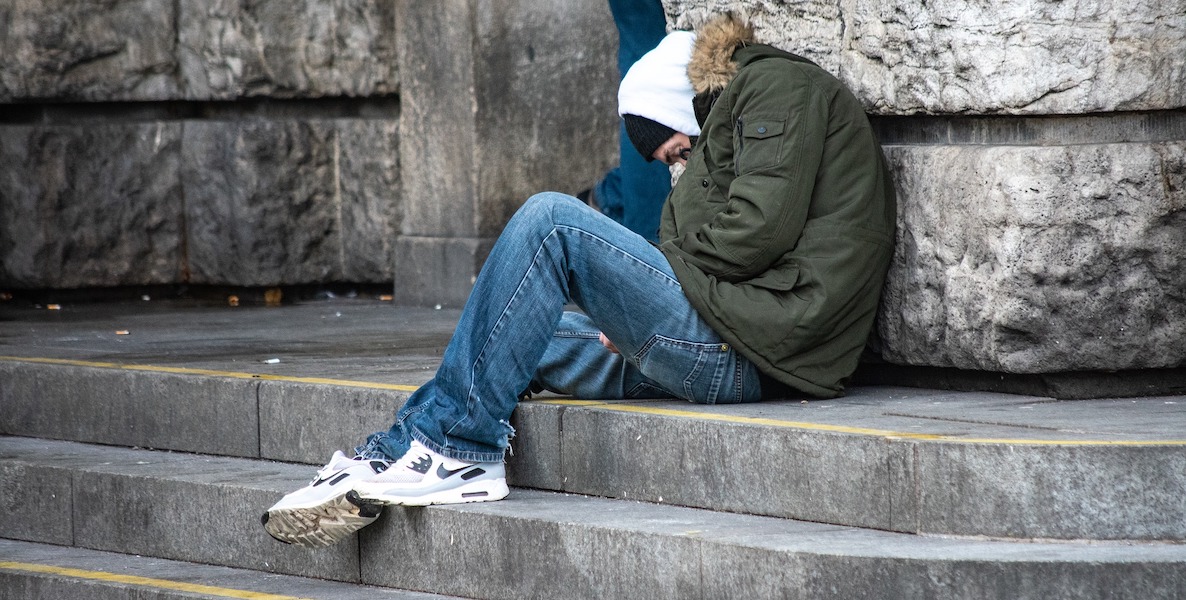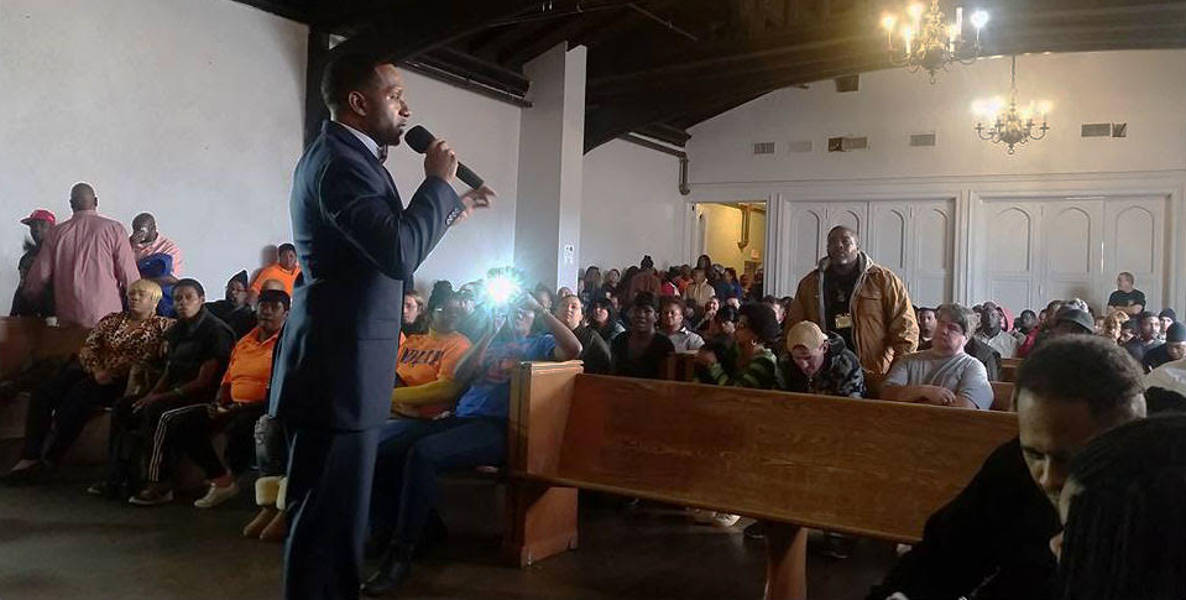It’s a grey day in Philadelphia, gloomy and unseasonably warm, when I talk to Mel Wells, president of One Day At A Time ministries. But he speaks with the effervescence of someone on his way back home from a pool party in mid-July. He addresses me as “bro” five times or so in our initial conversation, which is welcome, and makes me feel like I can call him “dude.” Wells’ cheeriness comes as some surprise considering what he sees and does everyday: ODAAT is a truly massive social work enterprise that works with thousands of Philadelphia’s most sick and troubled residents every year.
Let’s just say that the totality of Wells’ work doesn’t call for preternatural cheer, which makes it all the more impressive.
You’d be hard-pressed to find a beginning more humble than ODAAT’s. It started with Mel’s father, Henry T. Wells, and his mother Margaret Wells. Before ODAAT was founded, says Wells, his father was a drug dealer from Miami, Florida, who was on the run from the FBI, and his mother was a North Philly barmaid from the cotton fields of North Carolina. “My father decided to change his life when he realized he was getting on my mom’s nerves,” says Wells. “So he went into detox, and he saw in a book ‘one day at a time,’ like a poem. When he got out of detox, he asked my mom if he could start a foundation called ‘One Day At A Time,’ and my mom said, ‘Whatever you want to do, just keep people off drugs.’ ”
And so Henry went forward, without any angel funding or celebrity endorsements or, well, that much of a plan, using all he had in the world to start his foundation. “He started housing people right in the same house,” says Wells. “Actually, I had a client who lived right next to my own room growing up.” 1628 West York Street in North Philly, Wells’ childhood home, was the epicenter of the operation. “From that one room, we filled half our house with drug addicts and the other half with family members,” he says.
“Other organizations seem to forget, but the life of a recovering addict is very complicated. When you need help, you need to go through so many hoops,” says Wells. “If you come to ODAAT, we’re not just looking at drug and alcohol problems. We’re looking at recovery.
ODAAT was officially founded in 1983, just before the AIDS crisis and just at the start of the crack epidemic. While ODAAT was slow to gain traction, it eventually attracted the attention of local government and city organizers, including former Pennsylvania Senator Roxanne Jones and former Congressman Lucien Blackwell. According to Wells, ODAAT for a number of years has worked directly with the city of Philadelphia, from which it receives a substantial amount of funding, as well as from state and federal grants; ODAAT’s funding is managed by the Urban Affairs Council. Wells has nine recovery facilities open in North Philadelphia, and has recently expanded internationally through a partnership with HOPE Worldwide; now ODAAT has a presence as far away as India.
In Philadelphia, ODAAT’s programs run the gamut. The organization has a drug and alcohol recovery program; an AIDS/HIV testing and education program; a food bank; a mentorship program that provides low-income kids BMX bikes and advice on their use; a program that offers ex-convicts work by maintaining vacant lots; an internet Keyspot that provides free computer use; GED programs; two separate homeless outreach teams; and a program for youth that seeks to decrease urban violence. It holds annual AIDS awareness marches and block parties at which ODAAT gives away school backpacks. It is also a non-denominational church—Wells’ father was a preacher—and maintains that spirituality is a part of the healing process.
When I ask Wells how many people ODAAT has helped over the course of its existence, I expect something of a runaround, the kind of thing that the interview subject has to email you later after they get the papers together. I even tell him that if he needs time to look it up, I’ll give him my email address. But, nah.
“56,000, about.”
Why is ODAAT so successful, with a chapter on a subcontinent thousands of miles away? It’s not as if there isn’t something of a glut in the field; as of 2014, there were more than 14,000 drug treatment organizations operating within the U.S. Wells suspects that it has something to do with the fact that ODAAT offers a lot more than recovery programs, focusing on helping addicts more wholly adapt to all aspects of their regular life, in their own communities, even going so far as employing some within the organization.
Wells says that 90 percent of the 30 people who work for ODAAT in Philadelphia came in off the street. ODAAT also works to help place clients in contract jobs throughout Philadelphia, and assists those not staying in recovery facilities in finding housing. He is quick to note that a lot of addicts have been so hobbled by addiction that they need help with simple stuff that could prevent them from moving forward with their lives, and so beset by their records that they often can’t find a warm place to spend the night. In short: These people need a place to completely reset, and ODAAT can offer it.
“Other organizations seem to forget, but the life of a recovering addict is very complicated. When you need help, you need to go through so many hoops,” says Wells, 35, who learned the brunt of his trade on the job, but is planning to take classes on public speaking, criminal justice or community organizing at Pierce College come spring. “If you come to ODAAT, we’re not just looking at drug and alcohol problems. We’re looking at recovery. Maybe it’s a man who’s sneaking around on his wife—he may need a condom. Somebody may need food one day, we give them food. An individual can walk in off the street who needs an HIV and AIDS test and a place to stay for the night.”
In the beginning, 1628 West York Street in North Philly, Wells’ childhood home, was the epicenter of the operation. “From that one room, we filled half our house with drug addicts and the other half with family members,” he says.
ODAAT says that their recovery facilities sleep 80 heads per night, and more in the winter when “Code Blue” warnings are issued by the National Weather Service and City of Philadelphia.
Wells’ organization regularly endorses and encourages its workers—clients, as he refers to them—to participate in free clinics that cater to former addicts, including birth certificate and expungement workshops.
“We started looking at the needs of the people we serve and we realized: They didn’t know how to get their birth certificates. They didn’t know how to get a criminal background check. They didn’t know how to do any of this stuff,” says Wells. He says that he relies on ODAAT employees to help spread the word about the availability of such clinics and workshops.
Sheena Wallace is the first person I talked to at ODAAT, inasmuch as she’s the executive assistant and the one who happened to pick up the phone. She’s a full time volunteer at the organization—five days a week. For her, it’s personal.
“My uncle, he was in recovery for drug use some time ago—about 20 years ago,” Wallace says. “He met someone who changed his life. It was the founder [of ODAAT] Reverend Wells; he helped my uncle get clean. It turned out, in the process of getting clean, that my uncle had contracted HIV, which became AIDS. One Day At A Time helped him at a time when a lot of organizations didn’t help anyone with HIV or AIDS. They just constantly help people.”
They certainly helped her uncle, she says, through their constant support and outpouring of faith. She says his T-cell count is amazing, he works out regularly and he is phenomenally healthy. And he works for ODAAT.







